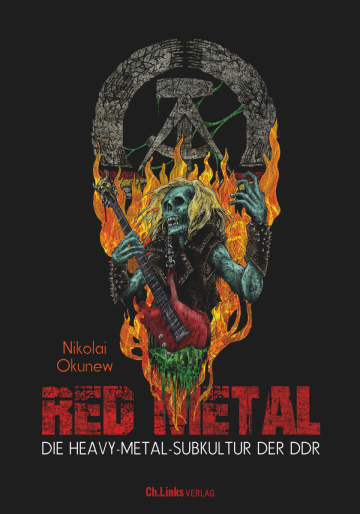The global revival of Heavy Metal music in the early 1980s did not stop at the Elbe River. Looked down upon by state media, Heavy Metal fans emerged in every GDR district. In their spare time, almost exclusively dedicated to the collective consumption of music, these groups may have formed the biggest youth subculture in the socialist state. Especially alarming to party officials was the fact that most members seemed to have a working-class background – yet they displayed little or no interest in official socialist culture.
Within this doctoral project, I examined the emergence and development of the Heavy Metal subculture and its practices under the prevailing conditions of socialism. The emphasis is on the role of newly privatised and military broadcasting stations and of modern media, such as the compact cassette. Furthermore, the preoject tested the observation of GDR sociology on the masculine and blue-collar identity of the ‘Heavies’. The goal was to draw conclusions about a possible non-discursive and emotional dimension of subcultural practices that forced the regime to take action even though Heavy Metal fans rarely desired to take part in open political opposition. In a final step, I examined the fate of the Heavy Metal subculture, which paradoxically seemed to dissolve within a matter of months in the autumn and winter of 1989/90.
Sources: Stasi Record Agency (BStU), documents from the German Radio Archive (Deutsches Rundfunkarchiv Babelsberg) and academic works from ZIJ, the GDR’s Central Institute for Youth Research (Zentralinsitut für Jugendforschung), and conduct interviews with (former) Heavy Metal fans.
Nikolai Okunew defended his dissertation on October 7, 2020 with summa cum laude at the University of Potsdam.
The research results will be presented in a book to be published by Chr.Links VerlagNovember 2021:
To the publisher's preview: https://www.christoph-links-verlag.de/index.cfm?view=3&titel_nr=9138


